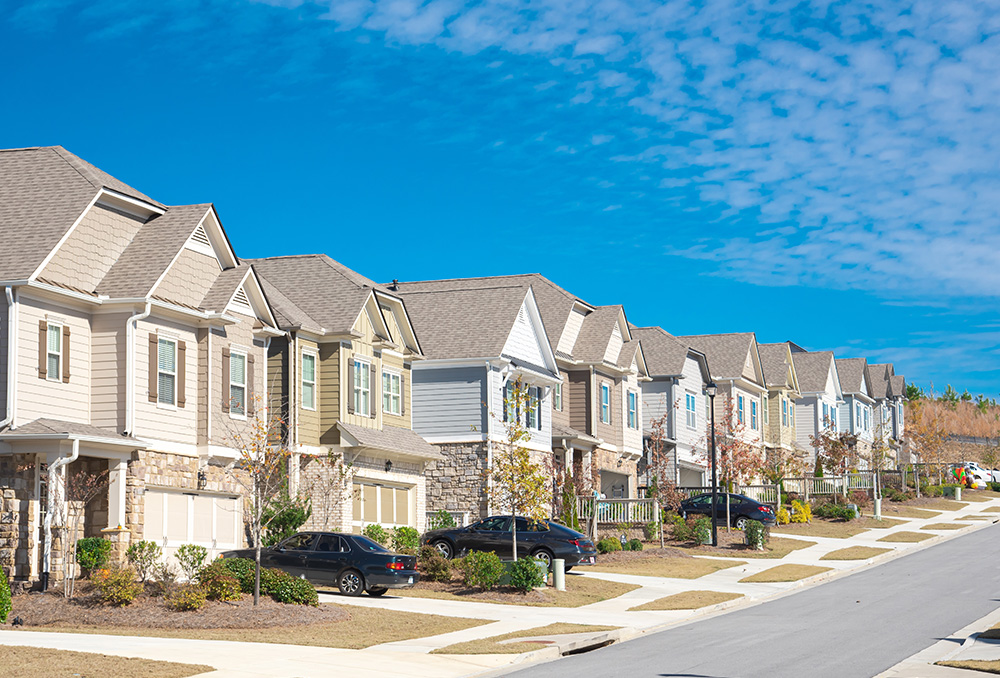
Construction Defects in Master Planned Communities
When a Dream Community Turns into a Construction Nightmare
Master planned communities offer attractive amenities, scenic layouts, and the promise of quality living. But when newly built homes in these developments begin showing signs of construction defects—leaks, cracks, shifting foundations, or failing infrastructure—homeowners often realize too late that quality control took a back seat to speed and profit.
At Fertitta & Givens, we represent homeowners throughout Texas, including in growing master planned communities around Houston, Galveston, League City, and Texas City, who discover construction problems in what should have been their dream homes. We understand the unique issues these developments face and know how to hold builders and developers accountable.
Call (346) 258-5803 or contact us online to discuss a potential residential construction defect claim. Consultations are FREE and confidential.


.2512030912555.png)

Defects Common in Master Planned Developments
Because homes in master planned communities are often built quickly and at scale, problems can emerge across multiple properties. These aren’t just isolated issues—they often indicate widespread construction shortcuts. Common defects include:
- Water intrusion from poorly sealed windows, doors, or stucco. This can result in visible stains, warping, or mold growth. In many cases, entire blocks of homes suffer from the same flawed installation methods or materials.
- Foundation movement due to improper site prep or expansive soils. Poor compaction and lack of soil testing lead to cracking slabs, uneven floors, or misaligned doors throughout sections of a development.
- Improper drainage and grading, often affecting multiple homes or streets. You might notice standing water after storms or soggy yards that never dry out. These issues can cause long-term erosion and destabilize foundations.
- Roofing and siding failures from rushed or careless installation. Shingles may lift, flashing may be missing, or exterior walls may show signs of early wear or water penetration.
- Cracked driveways, patios, or walkways from subpar concrete work. Repetitive cracking patterns across a neighborhood may point to systemic problems with materials or curing methods.
- Defective plumbing or HVAC systems installed by low-bid subcontractors. Symptoms can include persistent leaks, uneven heating or cooling, poor air quality, or noisy ductwork.
These problems may not appear until months or even years after closing, but when they do, they often point to systemic issues affecting entire sections of a development.
Why Defects Are So Common in These Communities
In high-demand areas, developers often build entire subdivisions in phases using national or regional builders such as Lennar, Perry Homes, D.R. Horton, Taylor Morrison, or LGI Homes. These companies frequently subcontract key portions of the work to local crews operating under tight deadlines and limited oversight. With so many moving parts and pressure to deliver homes fast, defects become inevitable.
Builders often prioritize volume and marketability over quality, focusing on maximizing profits through rapid turnaround. As a result, critical steps like waterproofing, grading, or site compaction may be rushed, poorly coordinated, or ignored altogether.
Even the infrastructure around homes, like drainage systems, street grading, and common-area development, may be built on outdated or flawed plans, with little accountability once the neighborhood is sold out. In many cases, problems don’t emerge until years later, after warranties have lapsed and developers have moved on to the next project.
Legal Claims for Construction Defects in Master Planned Communities
If your home was built in a master planned community and you’re seeing signs of poor construction, you may have several legal options:
- Texas Residential Construction Liability Act (RCLA) – Requires notice to the builder and gives them a chance to inspect and offer repairs.
- Warranty claims – Most builders offer limited warranties, but they can be difficult to enforce without legal help.
- Negligence or breach of contract – Especially if the builder ignored code requirements or failed to meet specifications.
- Deceptive Trade Practices Act (DTPA) – If the builder or developer misrepresented the quality or safety of the home.
We help homeowners understand which laws apply, how to give proper notice, and what timelines matter most.
How Fertitta & Givens Can Help
- We coordinate independent inspections and expert reports to identify construction defects.
- We handle builder communications and RCLA compliance, so you don’t have to.
- We pursue negotiated resolutions or litigation, depending on what your case demands.
- We provide personal service and honest counsel at every step.
Whether the defect affects only your home or is part of a larger pattern across your neighborhood, we’re prepared to fight for a full and fair resolution.
FAQ: Construction Defects in Master Planned Communities
What If My Neighbors Have the Same Issues?
This could suggest a systemic construction issue across your section or phase of the development. We can evaluate whether a coordinated legal approach is appropriate.
Do Builders Have to Fix These Problems?
If the issue qualifies under RCLA or the warranty, yes, but they often won’t without pressure. That’s where experienced legal counsel helps.
How Long Do I Have to Act?
The general deadline is 10 years from completion, but warranty and notice deadlines may be shorter. Don’t wait to start the process.
Can I Still File If I Bought the Home Secondhand?
Possibly. Some warranties transfer to the next owner, and defect claims may still be valid depending on the construction date.
When a defect threatens your home, your health, or your investment, you deserve answers, not excuses. At Fertitta & Givens, we help homeowners stand up to large-scale builders and developers that prioritize profit over people.
Whether you’re dealing with widespread drainage problems, cracking foundations, or unsafe construction in your community, we’re here to help.
Call (346) 258-5803 or contact us online to request your FREE consultation.







